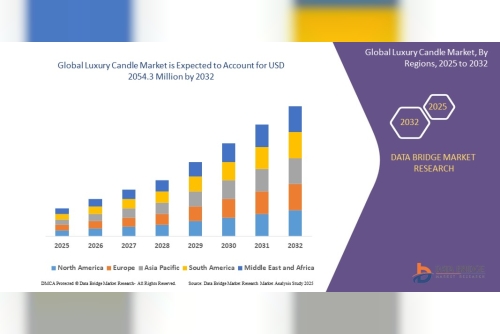Introduction
Fertility preservation and In Vitro Fertilization (IVF) has revolutionized family planning, offering hope and options for individuals seeking to safeguard their fertility. These advancements empower individuals to take control of their reproductive health, allowing them to plan for the future on their terms.
Fertility Preservation: Securing Future PossibilitiesFertility preservation techniques, such as egg or sperm freezing, enable individuals to preserve reproductive cells for future use. This option is particularly valuable for those facing medical treatments that may compromise fertility, such as chemotherapy or radiation therapy. It also provides an opportunity for individuals who wish to delay starting a family for personal or professional reasons.
IVF: Assisted Reproductive TechnologyIVF treatment is a widely recognized assisted reproductive technology that combines eggs and sperm outside the body in a laboratory setting. This method is commonly used by individuals or couples experiencing infertility or those who have preserved their reproductive cells for future use. IVF offers a path to parenthood, even in the face of various fertility challenges.
Who Can Benefit from Fertility Preservation and IVF?Cancer Patients: Those facing cancer treatments that may affect fertility have the option to preserve reproductive cells before undergoing therapy, providing hope for parenthood after recovery.
Individuals Delaying Parenthood: Professionals or individuals who wish to delay starting a family due to career, personal, or other reasons can preserve fertility through these methods.
Same-Sex Couples: Fertility preservation and IVF offer valuable pathways to parenthood for same-sex couples, allowing them to have biologically related children.
Those Facing Infertility: IVF is a beacon of hope for individuals or couples experiencing infertility, offering them a chance to conceive and start a family.
Emotional and Ethical Considerations
While these technologies offer promising solutions, they also come with emotional, ethical, and sometimes financial considerations. The decision-making process involves understanding the emotional impact of fertility treatments, grappling with ethical concerns surrounding reproductive technology, and considering the costs involved in these procedures.
The Importance of Counseling and SupportIndividuals considering fertility preservation or IVF benefit greatly from comprehensive counseling and support. This support helps them navigate the emotional challenges, make informed decisions, and understand the ethical implications of these treatments. Counselors offer guidance through the entire process, addressing concerns and ensuring individuals feel supported in their choices.
Breaking Stigmas and MisconceptionsDespite the advancements in fertility preservation and IVF, stigmas and misconceptions persist. Education and open conversations play a pivotal role in dispelling these myths, fostering understanding, and offering support to individuals considering these options. Increased awareness can help eradicate stigma and provide a supportive environment for those seeking fertility assistance.
Future Trends and InnovationsThe field of fertility preservation and assisted reproductive technologies continues to evolve. Ongoing research and technological advancements aim to improve success rates, minimize invasiveness, and reduce costs, making these options more accessible and effective for a broader population.
Financial Considerations and AccessibilityFinancial factors can be a significant barrier for many individuals seeking fertility preservation and IVF. The costs associated with these procedures can be substantial, and insurance coverage for fertility treatments varies widely. Access to these technologies is not always equitable, impacting the ability of many to pursue these options. Initiatives advocating for increased insurance coverage and financial support can make these vital reproductive options more accessible to a broader population.
Legal and Regulatory LandscapeThe legal and regulatory framework surrounding fertility preservation and IVF varies across regions. Laws regarding the use, storage, and ownership of reproductive materials differ, impacting individual rights and options. Advocacy for clear and supportive legislation is crucial to ensure that individuals have the necessary legal protections and can exercise their reproductive rights.
Psychological Impact and Support ServicesThe emotional journey associated with fertility preservation and IVF is significant. The process can be emotionally taxing, with individuals often experiencing stress, anxiety, and a range of complex emotions. Access to psychological support services is crucial to help individuals navigate these challenges, providing them with the necessary tools to cope with the emotional aspects of their fertility journey.
Cultural and Social PerspectivesCultural and social perspectives play a pivotal role in shaping attitudes towards fertility preservation and IVF. Societal norms, cultural beliefs, and religious values can impact an individual's decision to pursue these technologies. Encouraging open discussions and education about these methods can help foster acceptance and understanding, reducing stigmatization and societal barriers.
Male Fertility PreservationWhile much of the conversation around fertility preservation focuses on egg freezing and female fertility, advancements in preserving male fertility have also made significant strides. Sperm freezing and innovative techniques for preserving and restoring male reproductive health provide opportunities for men facing infertility issues or those seeking to delay parenthood.
Holistic Approaches to Fertility CareThe journey towards parenthood involves more than just medical procedures. Holistic approaches to fertility care encompass nutrition, mental well-being, lifestyle modifications, and complementary therapies. Integrating these holistic practices with medical interventions can optimize the chances of success and contribute to overall well-being during the fertility journey.
Fertility Education and Family PlanningEducation about fertility health and family planning is crucial. Many individuals lack comprehensive knowledge about their reproductive health and the factors that can impact fertility. Providing accessible and accurate information can empower individuals to make informed decisions about their reproductive futures and take proactive steps toward preserving fertility.
Looking Ahead: A More Inclusive FutureAs we move forward, creating a more inclusive and supportive environment for individuals exploring fertility preservation and IVF is essential. Advocacy, improved accessibility, enhanced emotional and psychological support, and an open dialogue regarding these technologies are all crucial elements in shaping a future where these options are widely available and accepted.
ConclusionFertility preservation and IVF offer individuals the power to plan their futures in unimaginable ways. These technologies provide hope, possibilities, and solutions for various fertility challenges, empowering individuals to make informed choices about their reproductive health. With continuous support, evolving technologies, and an open conversation, the landscape of fertility preservation and IVF continues to expand, ensuring a brighter future for those who seek to build their families on their terms.












 Resolving PDF Issues in QuickBooks
Resolving PDF Issues in QuickBooks